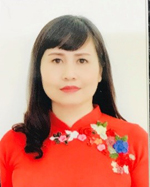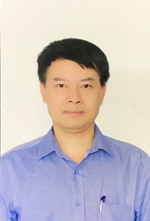- FUNCTIONS AND TASKS:
- Developing NAPA’straining plans
- Conducting surveys and evaluation of training needs and public servant training quality of public agencies and organizations as assigned by NAPA President.
- Conducting training programs and scientific research
-Conducting training courses on public mangement for public empoloyees before their appointment to leadership or management position; training public administration based on civil service ranks, professional titles and job positions;
-Upgrading competencies, knowledge, and skills in leadership and management based on the standards of leadership and management posts
-Organizing training on legal knowledge, public administration, and state management for deputies to the People’s Councils at all levels;
-Training cadres, civil servants, and public employees on knowledge, skills, and application of state-of-the-art technologies in state management;
-Training on professional knowledge and skills based on the standards of the work of home affairs; training cadres, civil servants, and public employees on professional knowledge and skills in the areas falling under jurisdiction of the Ministry of Home Affairs;
-Training cadres, civil servants, and public employees on professional knowledge and skills in emulation, commendation and religious affairs;
-Training professional knowledge and skills in administrative management; training public employees according to their ranks and professional titles; training knowledge and skills in state management for cadres, civil servants, and public employees who are in the succession planning for leadership and management posts at district and higher levels, as assigned by competent;
-Training knowledge and skills in state management; training professional knowledge and skills in state management for cadres and civil servants at commune level and other groups of officials as assigned by competent authorities;
-Training skills in public administration and state management for cadres, civil servants, and public employees in public non-business units and socio-political organizations, public managers, leaders, and others in the state-owned enterprises;
-Training public administration, state management, public policy and teaching methods for lecturers, researchers working in training institutions for cadres, civil servanmts and public employees and other target groups;
-Undertaking international cooperation in training public administration knowledge and skills by law and by NAPA regulations.
-In charge of developing new training programs as assigned by NAPA President;
-Consulting in adjustment of contents, structures and duration of training programs;
-Coordinating with relevant units to develop, adjust and supplement training programs based on the needs of organizations;
-Participating in scientific research, developing training proposals and projects as assigned by NAPA President.
- Assisting to NAPA President
-Chairing and coordinating with relevant units to develop regualtions for NAPA training; unifying organization and implementation of NAPA training regulations;
-Giving instructions of NAPA training implementation to NAPA units;
-Collecting proposals of lecturers participating in NAPA training programs from NAPA faculties to submit to NAPA President for approval; chairing and coordinating with training faculties to develop training schedules and appraise capacities of visiting lecturers for NAPA training programs;
-Consulting, providing public services relating to training cadres, civil servants and public employees and other target groups as assigned by NAPA President.
- Participating in development of NAPA’s strategy, programs, plans, regulationsand other documents as assigned by NAPA President.
- Implementing other duties assigned by NAPA President.
- Conducting management of NAPA’s undergraduate training.
III. ORGAZIZATIONAL STRUCTURE: The total staff of the Department is 62 including 03 doctors, 52 masters and 7 bachelors.
- The leadership of the Department
- Divisions under the Department
2.1. Division of Management of Civil service rank and Job-based Training
2.2. Division of Management based on standard of leadership and management posts
2.3. Division of Management of Administration Training for Businesses
2.4. Division of Planning and General Affairs
2.5. Division of Training Management and Administrative Human Resource Development
IV.MAJOR ACTIVITIES
– Developing NAPA’s training plans, studying regulations, training management regulations, standards for lecturers of training courses and giving instructions on implementation of training programs;
– Organizing training on knowledge of state management for officials, principal officials and senior officials;
– Conducting training for leaders and managers at department, division and district levels;
– Conducting training on teaching methods and building capacity for lecturers of pubic management;
– Conducting training on capacity for commune leaders of Hanoi City.
– Training cadres, civil servants, and public employees on professional knowledge and skills in emulation, commendation and religious affairs;
– Participating in scientific research, conducting surveys and assessement of training needs and developing projects for localities;
– Conducting training and management of undergraduate training and in service training courses.













